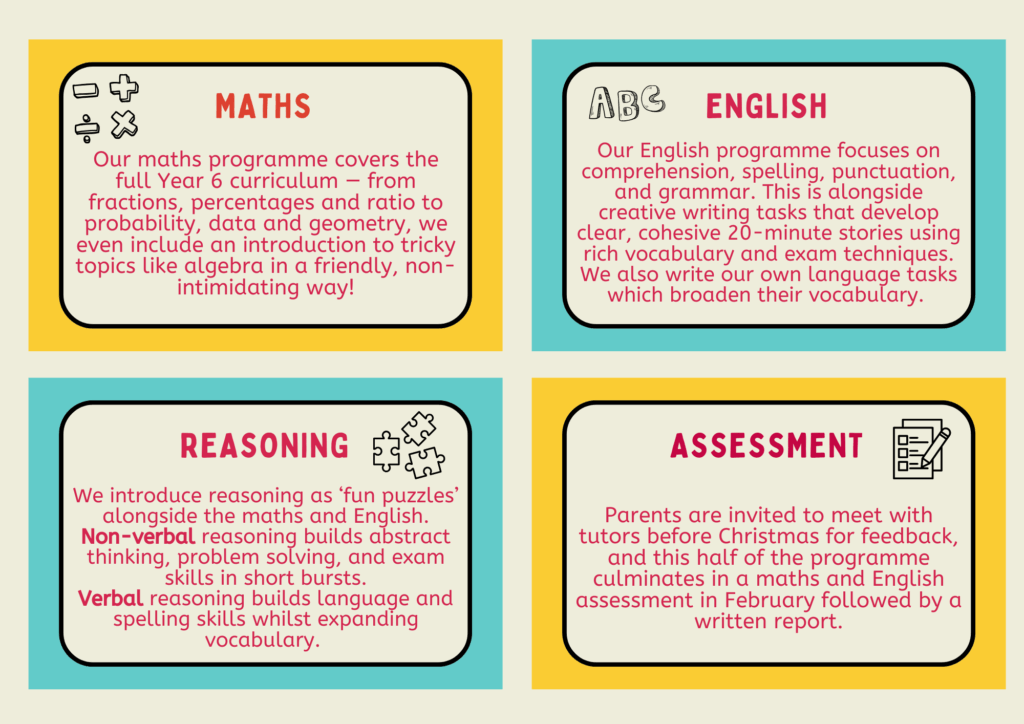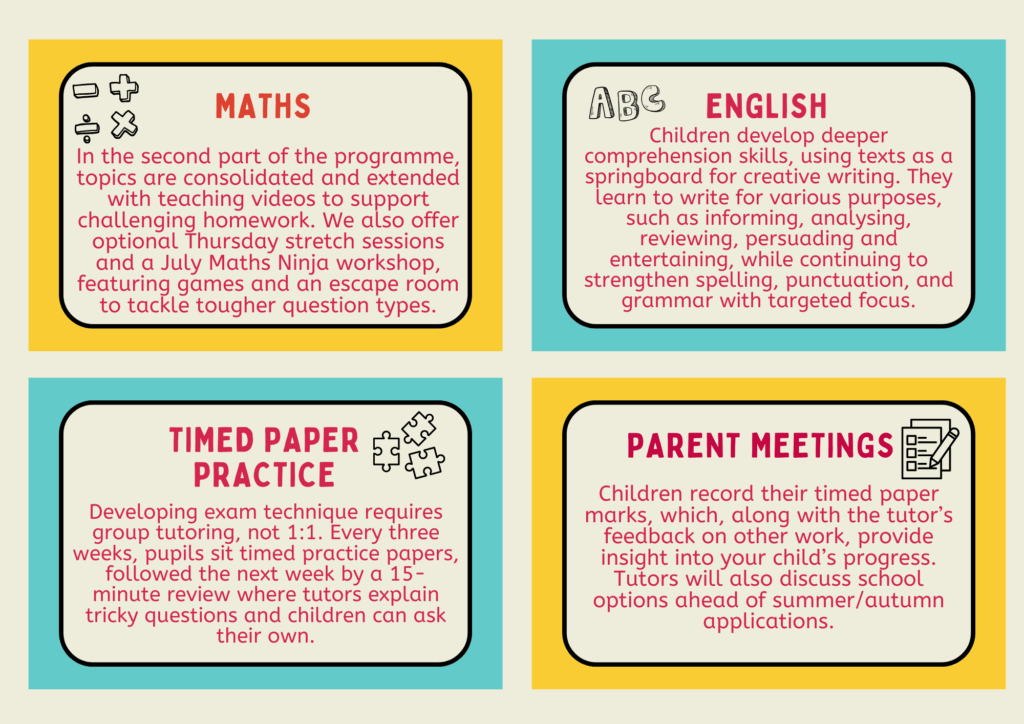Year 5
YEAR 5 COURSE OVERVIEW
Our Year 5 programme is split into two phases. In the first half of the year, pupils are introduced to the new Year 6 curriculum. In the second half, we focus on consolidating and extending their learning, tackling the most challenging Year 6 question types (end-of-year standard) and building confidence with timed paper practice.
We also hold a parent meeting in November to review your child’s progress and share how they are doing, and you can let us know how they’re getting on at home too!
AUTUMN – SPRING PROGRAMME (Part 1)

SPRING – SUMMER PROGRAMME (Part 2)

